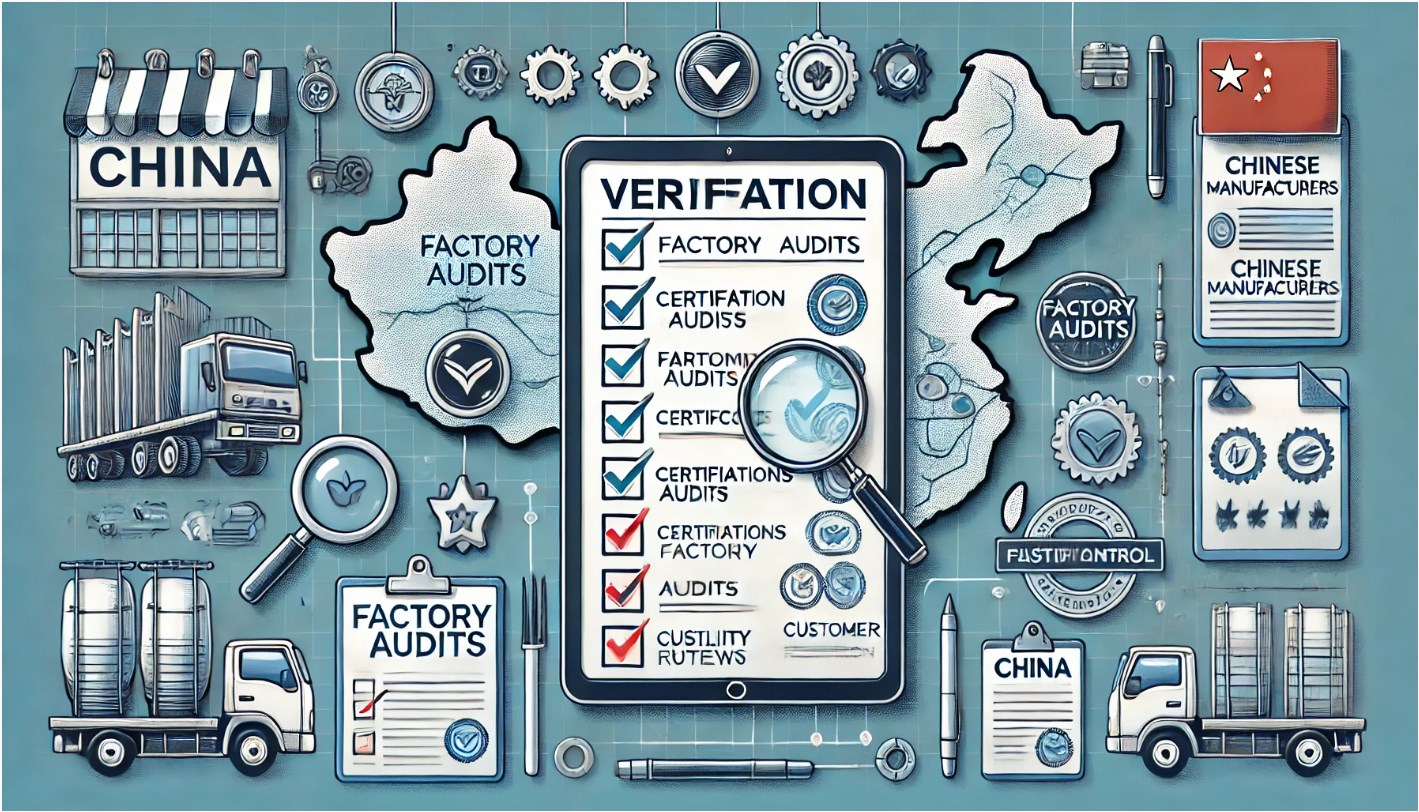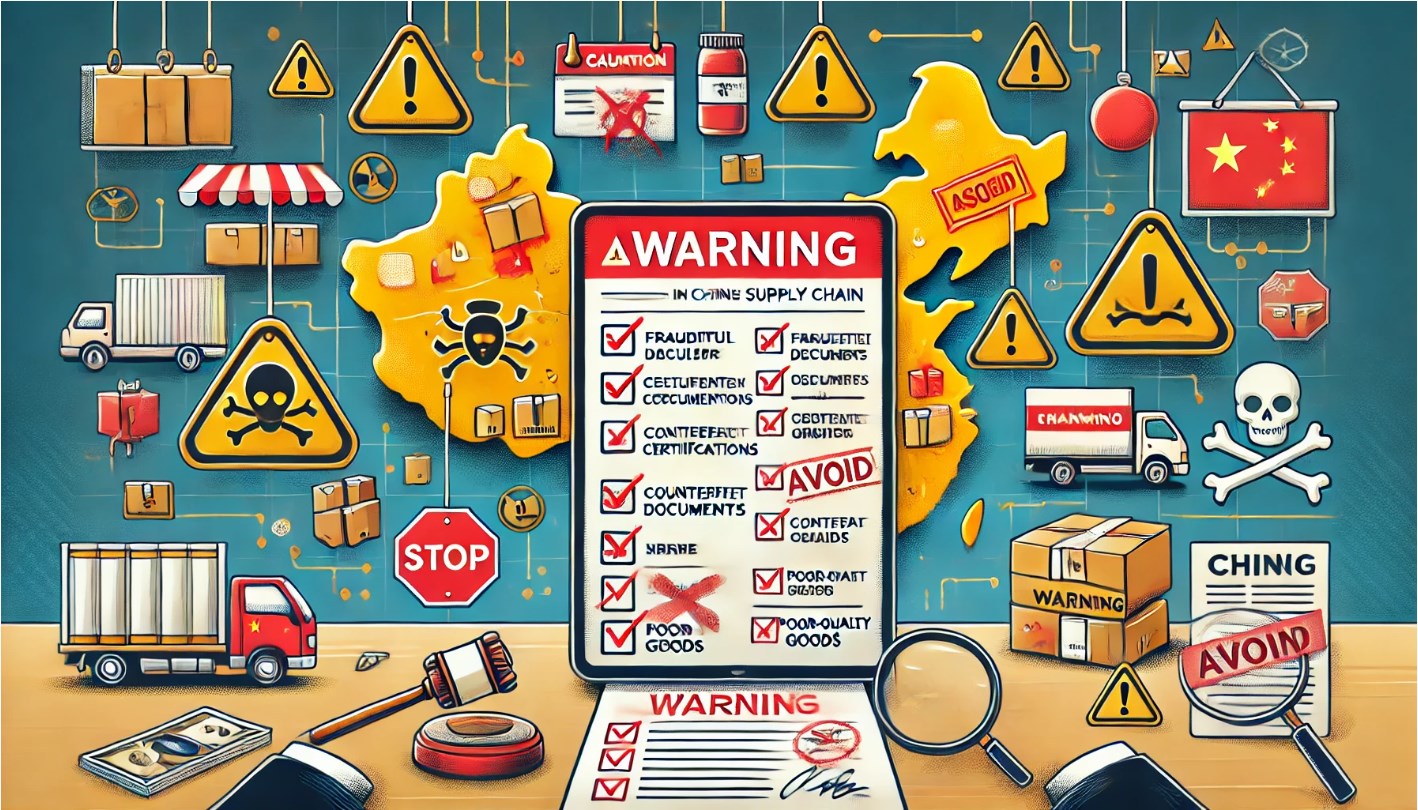Entering into a business partnership with a Chinese company can open up tremendous opportunities due to China’s robust manufacturing capabilities, cost advantages, and market access. However, this also comes with risks and challenges due to differences in business practices, legal frameworks, and cultural norms. To mitigate these risks and ensure a successful partnership, thorough due diligence is essential before committing to any agreements.
Due Diligence in the Chinese Context
Due diligence is the process of investigating and verifying the business, financial, legal, and operational aspects of a potential partner to assess risks, ensure compatibility, and protect both parties’ interests. In the context of China, due diligence also includes navigating local regulations, understanding cultural nuances, and addressing potential barriers such as language differences and political risks.
The Importance of Due Diligence in China
China’s legal and business environment can be complex, especially for foreign companies looking to establish partnerships. Conducting proper due diligence helps prevent issues such as fraud, intellectual property theft, regulatory non-compliance, and financial instability.
- Risk Mitigation: Conducting thorough due diligence helps identify potential risks in the partnership and mitigates legal and financial exposure.
- Cultural Sensitivity: China’s business culture and practices differ significantly from those of Western countries. Understanding these differences and conducting proper checks can help foster smoother relationships.
- Regulatory Compliance: China’s regulatory environment is constantly evolving. Ensuring that the partner complies with local laws and international standards is crucial for the success of the venture.
Legal and Regulatory Compliance
When entering into a partnership with a Chinese company, ensuring legal and regulatory compliance is a crucial step in the due diligence process. China’s legal system can be intricate, and foreign companies must be particularly cautious about local business laws, intellectual property protection, and government policies.
Business Licenses and Registrations
One of the first steps in the due diligence process is verifying the legal status of the Chinese company. Ensuring that the business is properly registered and licensed is critical for avoiding potential legal disputes or regulatory penalties.
- Business License Verification: Check whether the company has a valid and up-to-date business license issued by the Chinese government. This ensures that the company is operating legally in its industry and is authorized to conduct the type of business that it claims to be involved in.
- Registration Details: Review the company’s registration with the State Administration for Market Regulation (SAMR) or other relevant local authorities. This provides insight into the company’s legal standing, ownership structure, and business activities.
Intellectual Property and Patent Protection
Intellectual property (IP) is one of the most significant concerns for foreign businesses operating in China. IP theft and infringement can undermine business operations, especially if the partner is not committed to protecting proprietary technologies or innovations.
- IP Ownership Verification: Verify the ownership of any patents, trademarks, copyrights, or other intellectual property that the Chinese company claims to hold. This can be done through the China National Intellectual Property Administration (CNIPA) or a legal firm specializing in IP law.
- Non-Disclosure Agreements (NDAs): It’s crucial to have legally binding NDAs in place before discussing sensitive intellectual property or confidential information. An NDA ensures that both parties are legally obliged to protect each other’s proprietary information.
- Patent Filings: If the partnership involves developing new products or technologies, check for any patents or IP filings associated with the company. Ensure that there are no existing IP disputes or pending lawsuits related to IP rights.
Local and International Regulations
China has a wide array of regulations governing business operations, trade, and corporate activities. These regulations can change frequently, so it’s important to keep track of relevant legal obligations.
- Foreign Investment Laws: Ensure that the partnership complies with China’s laws regarding foreign investment, such as the Foreign Investment Law (FIL). This law governs how foreign companies can invest in China and participate in joint ventures or wholly foreign-owned enterprises.
- Environmental and Industry-Specific Regulations: Depending on the industry, there may be specific environmental regulations, product safety standards, or other local compliance requirements. A thorough review of these regulations ensures that the partner is adhering to all applicable laws, especially in highly regulated sectors like manufacturing, healthcare, and technology.
Financial Health and Stability
One of the most important aspects of due diligence is assessing the financial stability and performance of the Chinese company. Understanding its financial health helps avoid potential risks related to insolvency, financial mismanagement, and unexpected costs that could harm the partnership.
Financial Statements and Audits
To assess the financial health of the company, request its financial statements for the past few years. These should include the balance sheet, profit and loss statement, and cash flow statement.
- Independent Audits: For additional assurance, ask if the company has been audited by an internationally recognized firm. An independent audit provides an unbiased assessment of the company’s financial health and can uncover discrepancies or irregularities.
- Debt and Liabilities: Review the company’s outstanding debts, obligations, and liabilities. This includes both short-term and long-term debt, as well as contingent liabilities. High levels of debt could signal financial instability or an inability to meet future obligations.
- Revenue and Profit Trends: Evaluate the company’s revenue and profit trends over the past several years. Consistent growth is a good sign, while significant fluctuations may indicate underlying financial problems or market instability.
Financial Ratios and Liquidity
Understanding the company’s financial ratios and liquidity can offer insights into its ability to manage day-to-day operations and repay debts.
- Liquidity Ratios: Key ratios like the current ratio and quick ratio help assess the company’s ability to meet its short-term obligations. A low current ratio may indicate cash flow problems, which could affect business operations.
- Profitability Ratios: Ratios such as gross profit margin, net profit margin, and return on assets provide insight into the company’s profitability and overall efficiency.
- Cash Flow: Positive cash flow is essential for the smooth operation of any business. Ensure that the company generates enough cash to cover its operations and any potential investments.
Tax Compliance and Liabilities
Tax compliance is an essential aspect of financial due diligence, particularly in China, where the tax landscape can be complex and subject to frequent changes.
- Tax Records: Review the company’s tax filings and records to ensure compliance with local tax laws. This includes checking for unpaid taxes, penalties, or any issues with the tax authorities.
- Tax Incentives and Subsidies: In certain regions, Chinese companies may benefit from tax incentives or government subsidies. Understand whether the company is benefiting from any tax advantages and how they impact its financial performance.
Operational Capabilities
Evaluating the operational capabilities of a Chinese company is critical to ensuring that it can meet your expectations in terms of production capacity, quality control, and efficiency.
Manufacturing and Production Facilities
If the partnership involves manufacturing, it’s essential to evaluate the company’s production facilities. This includes an inspection of the factory’s capabilities, infrastructure, and adherence to quality standards.
- Facility Visits and Inspections: Conduct site visits to the company’s production facilities to assess their capabilities, equipment, and quality control procedures. This allows you to get a firsthand look at the operations and gauge whether the facilities meet your standards.
- Capacity and Scalability: Understand the company’s production capacity and whether it can scale to meet your needs, especially if you anticipate growth. Consider lead times, labor availability, and the flexibility of the company’s production processes.
- Compliance with Quality Standards: Ensure that the company adheres to relevant international quality standards (such as ISO 9001) and industry-specific certifications. This is particularly important for industries like food, pharmaceuticals, and electronics, where product quality is critical.
Supply Chain and Sourcing
An efficient and reliable supply chain is essential for ensuring that products are delivered on time and at the required quality.
- Supplier Relationships: Investigate the company’s relationships with its suppliers. A strong, reliable network of suppliers is essential for maintaining production timelines and ensuring product quality.
- Logistics and Delivery Capabilities: Understand the company’s logistics operations and delivery capabilities, including the use of third-party logistics providers (3PL). This ensures that products can be delivered efficiently and on time, especially if the partner is managing complex international logistics.
Technology and Innovation
The ability of the Chinese company to innovate and use technology effectively can be a significant factor in its long-term success. Evaluating its technology infrastructure and R&D capabilities can provide insights into its ability to remain competitive.
- Research and Development: If the partnership involves innovation or new product development, evaluate the company’s R&D capabilities. This includes assessing their technical expertise, patents, and investments in research.
- Technology Infrastructure: Check if the company is using modern technology and software systems to manage operations, such as ERP systems, data analytics tools, and automated production equipment.
Market Reputation and References
Evaluating a Chinese company’s reputation in the market is an essential step to determine its reliability, business ethics, and customer satisfaction. Market reputation can impact your brand’s image, so conducting a thorough review is crucial.
Online Reputation and Reviews
In today’s digital age, online reviews, ratings, and third-party platforms provide valuable insights into a company’s reputation.
- Third-Party Review Platforms: Research the company’s reputation on third-party review platforms such as Alibaba, Global Sources, and Trustpilot. Look for reviews from other buyers and assess whether the company has a track record of delivering quality products and services.
- Social Media and Industry Forums: Check social media platforms, industry forums, and news articles for information about the company. This can provide a broader view of its reputation and customer satisfaction.
Business References and Customer Testimonials
Contacting past or existing customers can offer valuable insights into the company’s performance and reliability.
- Customer References: Ask the company for customer references or case studies. Speak directly with these references to get a sense of their experience working with the company, the quality of products, and the reliability of delivery schedules.
- Dispute Resolution: Inquire about how the company handles disputes with customers or partners. A company that responds quickly and professionally to problems is more likely to be a reliable partner.






